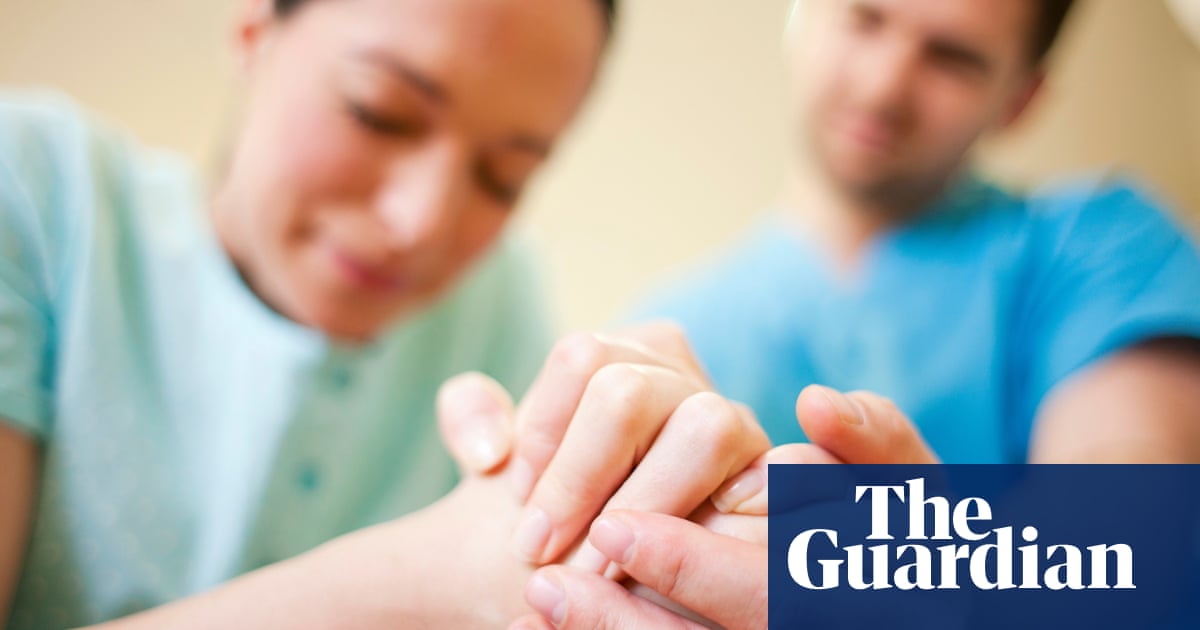
Mothers and babies are being put at risk as vital health checks and support services remain shut months after lockdown was lifted, health professionals and charities have warned.
Face-to-face services for new families stopped when lockdown began in March last year and have not come back in many parts of the country.
Now experts fear the spread of the Omicron variant and the reintroduction of some restrictions means the reopening will be delayed further.
Missing services include drop-in baby-weighing clinics, tongue-tie clinics, face-to-face breastfeeding support and council-run baby classes and playgroups.
Experts have accused the government of failing to prioritise the needs of a generation of babies and their parents, with cost-cutting and a shortage of midwives and health visitors blamed for the closures.
Parents told the Observer they have been unable to access in-person support in parts of London, Essex, Sussex, Yorkshire, Berkshire, Tyne and Wear, Warwickshire and Shropshire.
Health visitor drop-in clinics are “no longer running” in nearly a third of areas, and around 28% of newborn checks are being carried out via phone or video call, according to the No One Wants to See My Baby report by charities the Parent-Infant Foundation, Home-Start UK and Best Beginnings.
Its authors said: “Over a year [since the first lockdown], families told us that they are still struggling to access care, particularly from universal healthcare professionals like GPs and health visitors. They told us how this left them feeling unsupported, isolated and let down.”
The Institute of Health Visiting said different interpretations of government guidance meant some areas had brought back full services while others had not, creating a “postcode lottery of support for families”.
It questioned official advice that routine checks could continue to be done via video and telephone calls, warning there was no evidence these were “safe or effective”.
Executive director Alison Morton said: “Alongside the concerns of parents, there is a growing body of evidence that childhood conditions and disabilities are being missed, and vulnerable babies and young children are being harmed, as they are invisible to services when these assessments are not completed face to face.”
Amy Brown, professor of child public health at Swansea University and author of the book Covid Babies, said: “It is astonishing that you can take your baby into a pub but not go to a baby class. You can walk into a pet shop and get your dog weighed but you can’t drop in to the health visitor and ask them to weigh your baby.
“I don’t know of anything else in society that hasn’t come back, with or without restrictions… but the fact is that many of these services haven’t come back at all.”
After Suzanne Ekpenyong, 40, gave birth to her second child, Malakai, in West Sussex in August, she was told by health visitors she should “look at the baby to see if he’s getting bigger”, instead of trying to get him weighed.
“Parents aren’t experts – you have a mother’s instinct if something is wrong but it’s always good to get a professional to check. I am lucky not to have had problems … but I feel there’s a lack of prioritising this type of service that ultimately helps really vulnerable families,” said Ekpenyong, director of virtual assistant company Yes, from Woodford, east London.
Brown added: “Cancelling weigh-ins … means parents miss the chance to ask questions and get reassurance, they feel unsupported and feel like no one is looking out for their baby. This all adds to feelings of anxiety and depression.”
Postnatal depression and anxiety rates have tripled since the start of the pandemic, she said.
Local councils, which run children’s centre services, have raised concerns about the shortage of health visitors, many of whom were redeployed to nursing roles in the first lockdown and have not returned. David Fothergill, chairman of the Local Government Association’s Community Wellbeing Board, said councils were spending more on the under-fives than any other area of public health, despite funding cuts.
He added: “Councils have adapted to provide more support online and, while recognising this may not be right for everyone, many parents have found it easier to access what they need.”
A Department of Health & Social Care spokesperson said: “The NHS, local authorities and health visitors are working hard to reinstate services to help families get the support they need, and the public health grant will continue to ensure investment is made in … frontline services.”












